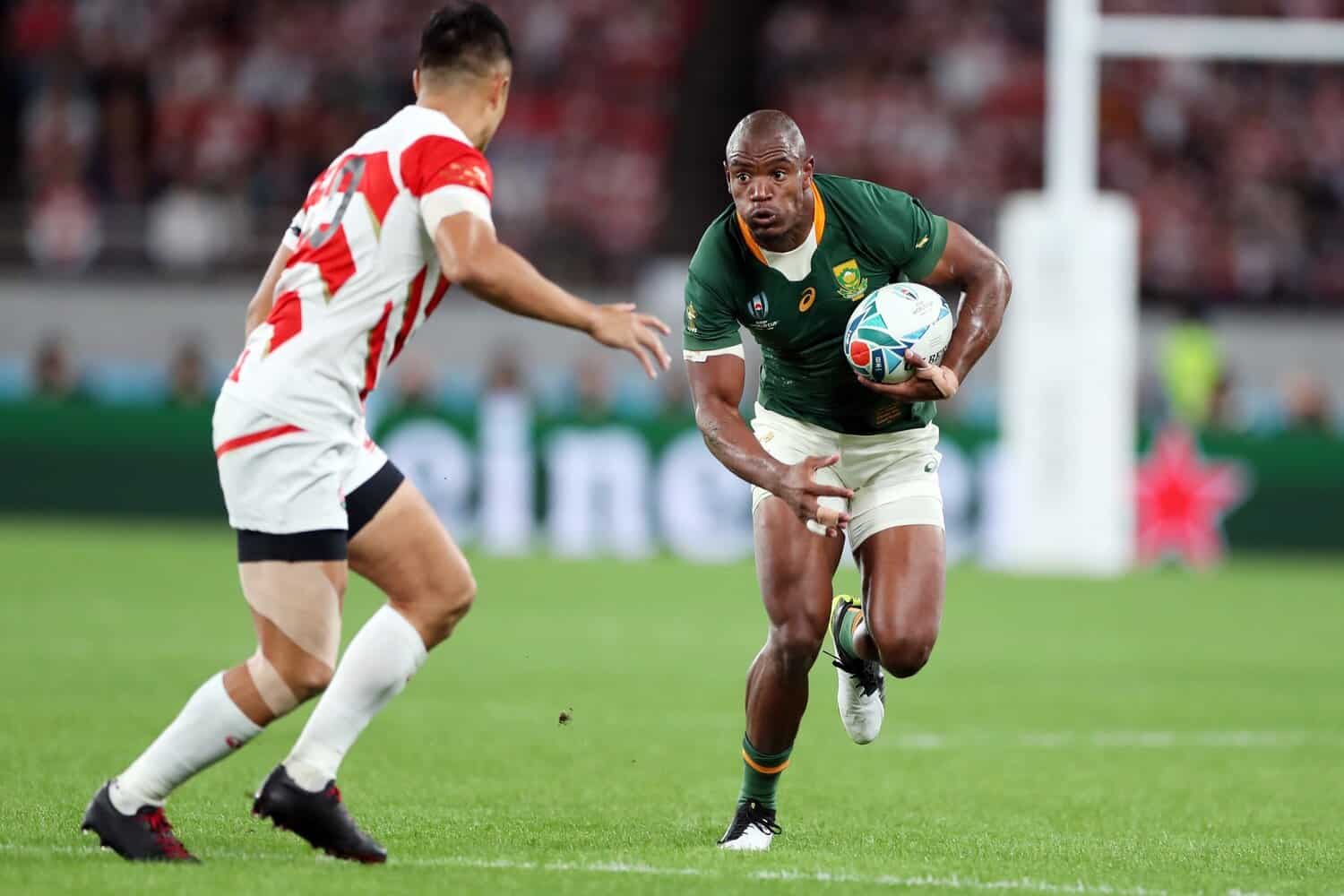The world champion Springboks have their path set for the northern autumn, and the headline is clear. On 1 November the Boks will open their European tour against Japan at the iconic Wembley Stadium, a fixture that has been officially confirmed and already humming with anticipation. For supporters on both sides, the return to London’s grand stage places Springboks vs Japan at Wembley at the heart of a tour that will also feature France, Italy, Ireland and Wales.
This announcement does more than plot a date on the calendar, it reconnects two nations whose brief history is rich with meaning. The Boks and Japan have met only three times, yet those encounters sketch a story arc that few rivalries can claim. From a seismic upset to decisive World Cup victories, the journey now moves to north London where the crowd, the echoes of past drama, and the precision of a modern Test itinerary will converge.
Why Wembley matters again
Wembley has not hosted a rugby match since 2016, which makes the Springboks’ return significant to fans of the world game. Back then, South Africa drew 31-31 with the Barbarians, a tense contest that reminded everyone how this venue elevates the stakes and sharpens the senses. The Boks now step back into that arena with a different brief, a full Test against a fast and fearless Japan, and with a champion’s aura that will attract a fervent crowd.
Head coach Rassie Erasmus framed the occasion within the Springboks’ wider journey, connecting history, venue and ambition. He recalled the last Wembley outing and the nerve-jangling closing minutes, a memory that aligns with the promise of a new chapter. The symbolism is unavoidable, first rugby event at Wembley since 2016 and a team that has grown through adversity and triumph alike now starting another demanding November.
“We are delighted to be starting off our tour of the Northern Hemisphere with a match against Japan at the iconic Wembley Stadium, especially ahead of a challenging Outgoing Tour which kicks off a week later with the first official Test of the November window against France in Paris,” said Springbok head coach Rassie Erasmus.
“The last time the Boks played at Wembley was in 2016 against the Barbarians, in a tense affair which went down to the wire in a 31-31 drawn match.
“We have had fantastic support from our fans in the UK for our fixtures in London over the past few years and I am sure this match will be no different, especially being at one of the most famous sporting venues in the world.”
A rivalry shaped by shock and response
There have only been three Springboks versus Japan matches, yet each carries a specific weight. The ledger is small, the meaning is vast, because the story begins with a jolt that still stirs conversation in clubhouses and living rooms wherever rugby is cherished.
- 2015 in Brighton at the Rugby World Cup, Japan stunned South Africa 34-32, called one of the biggest surprises in rugby history,
- 2019 in Japan before the World Cup, the Springboks won their warm-up meeting 41-7,
- 2019 in the World Cup quarter-final, the Boks prevailed 26-3.
That arc, from upset to response, offers the narrative fuel that will burn in the build-up to Wembley. The Brave Blossoms’ breakthrough in Britain still resonates because it was achieved on neutral soil against a rugby heavyweight, and because South Africa’s answer four years later in Japan showed how champions absorb lessons. It is no coincidence that this fixture will now begin a European tour, with the Springboks carrying both memory and momentum into an arena built for landmark sporting nights.
What Rassie Erasmus emphasised
Erasmus spotlighted Japan’s identity with clarity, praising their propensity for quick ball and incisive speed. He noted that the tempo and ambition evident in the 2019 meetings, one a pre-tournament clash and the other a knockout Test, will again define the contest. He also underlined the emotional tailwind the Boks enjoy in the United Kingdom, UK support that has grown with every successful outing in London.
Beyond the excitement of Wembley, the coach described the test of sequencing. A week after this additional match, South Africa face France in Paris in the first official Test of the November window, the type of pivot from spectacle to points on the line that shapes touring rhythm. That continuity of challenge will be central to how the Springboks manage minutes and mindsets across November.
London has become a second stage
The Springboks’ relationship with London has deepened in recent seasons. They defeated Wales 41-13 at Twickenham in June 2024, a performance that married grunt and precision. In the build-up to the 2023 Rugby World Cup in France they beat New Zealand 35-7 at the same venue, a statement victory that echoed through that tournament’s corridors.
Another London chapter arrives before Wembley as well. On 4 October, the Boks will take on Argentina in their away Rugby Championship Test at Twickenham. That fixture, followed by the Japan date at Wembley, sketches a London double that will keep South Africa in front of familiar faces. The city has become a companion, its stadiums the backdrop for big South African afternoons and nights, and the supporters have grown louder with every win.
The road through Europe
The Wembley match is more than a curtain-raiser, it is the opening act of a tour that also features Tests against France, Italy, Ireland and Wales. The sequence across the continent demands adaptability, from Parisian fervour to the particular challenges posed in the rest of Europe. The Springboks’ coaches and leaders will seek to balance intensity with clarity, ensuring that lessons from each outing are banked for the next step.
The language of touring is measured in moments that accumulate, a defensive stand here, a scrum dominance there, a turnover at a key interval. Wembley offers a base note, a chance to calibrate before official window pressures fully bite. The scale of the venue amplifies the tone, Wembley Stadium turning good passages into roars and testing the composure of each decision.
Tactical tempo and identity
Japan’s hallmark is speed. Erasmus pointed to their fast, attacking, high tempo approach, a style that asks opponents to think quickly and cover space relentlessly. South Africa will expect repeated questions around the breakdown and edges, with quick ball designed to stretch their line and invite mismatches.
That is where the Springboks’ clarity of plan becomes vital. They will look to control field position, win aerial moments and impose structure without surrendering adaptability. The aim is to prevent the contest from becoming a footrace on Japanese terms, instead channelling it into a platform that rewards patience and precision. It is a mental test as much as a physical one, and the first of many in November’s ledger, with France in Paris looming a week after Wembley.
Memory and motivation
The 2015 shock in Brighton remains a reference point for how the sport can flip narratives in an instant. For South Africa, it seeded a resilience that matured through the years, culminating in their modern champion status. For Japan, it sharpened belief in a blueprint built on speed and skill, a template that has carried into their most recent clashes.
To return to Britain for the latest chapter adds a twist that fans will appreciate. Made-for-television moments tend to find a way of arriving when the lights are bright and the stakes are layered. As the teams run out beneath the arch, stories from a decade of intersecting paths will orbit the whistle. Expect those memories to be present in every collision and carry, 2015 in Brighton echoing through the opening exchanges.
Key details at a glance
- Date 1 November,
- Venue Wembley Stadium in London,
- Opposition Japan,
- Context opening match of the Springboks’ European tour,
- Tour opponents also include France, Italy, Ireland and Wales,
- First rugby event at Wembley since 2016,
- Recent London results include wins over Wales and New Zealand at Twickenham.
What it means for fans
For supporters in the United Kingdom, this is a rare chance to see the reigning world champions on a grand stage against a team that refuses to play inside the margins. For fans in South Africa and Japan, it is a touchstone, a meeting that distils the past and foreshadows the rest of the month. Wembley will not settle the entire tour, but it will set a tone that travels to Paris and beyond.
Erasmus embraced that duality, gratitude for UK support balanced with the demands of a steep schedule. His words tap into a deeper truth about modern Test rugby, that momentum is borrowed, not owned, and that each week asks for a new proof of concept. The Springboks have earned their status, the Brave Blossoms have earned respect across the world, and on 1 November, they will add another line to a small but compelling rivalry.
So draw a circle around the date, and picture the arch lit against the night. Picture the jerseys, the colors, and the noise that rolls down from the stands. The Boks are back at Wembley, Japan bring their high tempo heartbeat, and London is ready to host a meeting that blends history with possibility. It is the perfect opening act for a month that will bring France, Italy, Ireland and Wales into focus, with Springboks supporters in the UK set to make themselves heard once again.






